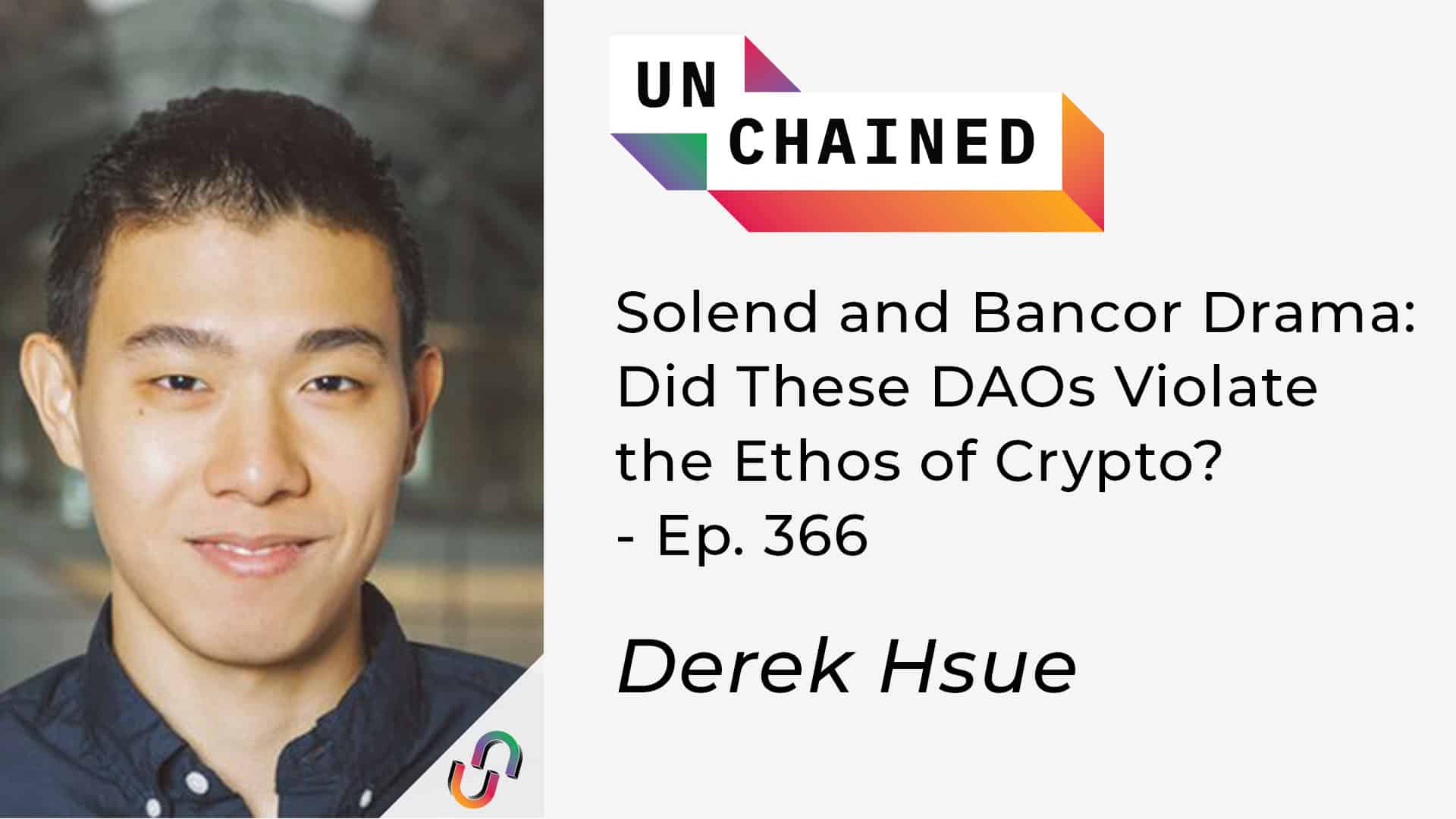Derek Hsue, cofounder at Reverie, discusses the recent controversial decisions by Solend DAO and Bancor, the importance of establishing processes for black swan events, and whether decentralized governance truly exists. Show highlights:
- what situation prompted Solend to feel it was in jeopardy
- what Solend DAO’s response was to that situation
- why Derek views it as “the nuclear option”
- why the proposal sparked an outcry from the crypto community
- whether this issue could have been prevented or managed differently if the protocol was built on a blockchain other than Solana
- why, a day later, the DAO reversed its first decision to take over the whale’s account
- whether Derek thinks the DAO made the right decision to not take over the whale’s account
- what is Impermanent Loss Protection, a feature offered by Bancor
- why Bancor decided to pause Impermanent Loss Protection
- whether Celsius and 3AC had anything to do with Bancor’s problem
- how Bancor’s decision was made unilaterally
- how DAOs should deal with black swan events
Thank you to our sponsors!
Crypto.com: https://crypto.onelink.me/J9Lg/unconfirmedcardearnfeb2021Ava Labs: https://www.avax.network/
EPISODE LINKS
Derek
- Twitter: https://twitter.com/derek_hsue
Reverie
- Website: https://www.reverie.ooo/
- Twitter: https://twitter.com/hi_reverie
Solend DAO Situation
- Covered on Monday’s Unchained Newsletter: https://unchainedpodcast.com/does-this-dao-deserve-emergency-power%e2%81%89%ef%b8%8f/
- Proposal to invalidate the first one: https://decrypt.co/103330/solana-lending-dao-overturns-vote-to-take-over-at-risk-whale-wallet
- The whale moved $25 million from Solend: https://www.theblock.co/post/153207/solana-whale-shuffles-25-million-to-reduce-risk-to-defi-protocol-solend
Bancor Pausing Impermanent Loss Protection
- Bancor’s post: https://blog.bancor.network/market-conditions-update-june-19-2022-e5b857b39336
- Anthony Sassano’s reaction: https://twitter.com/sassal0x/status/1539082583832526848?s=20&t=OzTV6M5bCH4fxJIJUtLA4Q
DAO Governance issues:
- Lido DAO proposes to reduce the existing scope of governance of its token holders: https://research.lido.fi/t/ldo-steth-dual-governance/2382
- Jack Niewold ‘s thread: https://twitter.com/JackNiewold/status/1539307339928457217?s=20&t=OzTV6M5bCH4fxJIJUtLA4Q
- Unchained Coverage: How Soulbound Tokens Could Reduce Speculation and Improve DAO Voting – Ep.360: https://unchainedpodcast.com/how-soul-bound-tokens-could-reduce-speculation-and-improve-dao-voting-ep-360/
Main tweet
On this Friday’s Unchained, Derek Hsue explains:
* why the first Solend DAO vote was the “nuclear option”
* whether Solana’s history of downtime spurred the proposal
* Bancor’s decision to stop Impermanent Loss Protection
* what this all means for DAO governance




